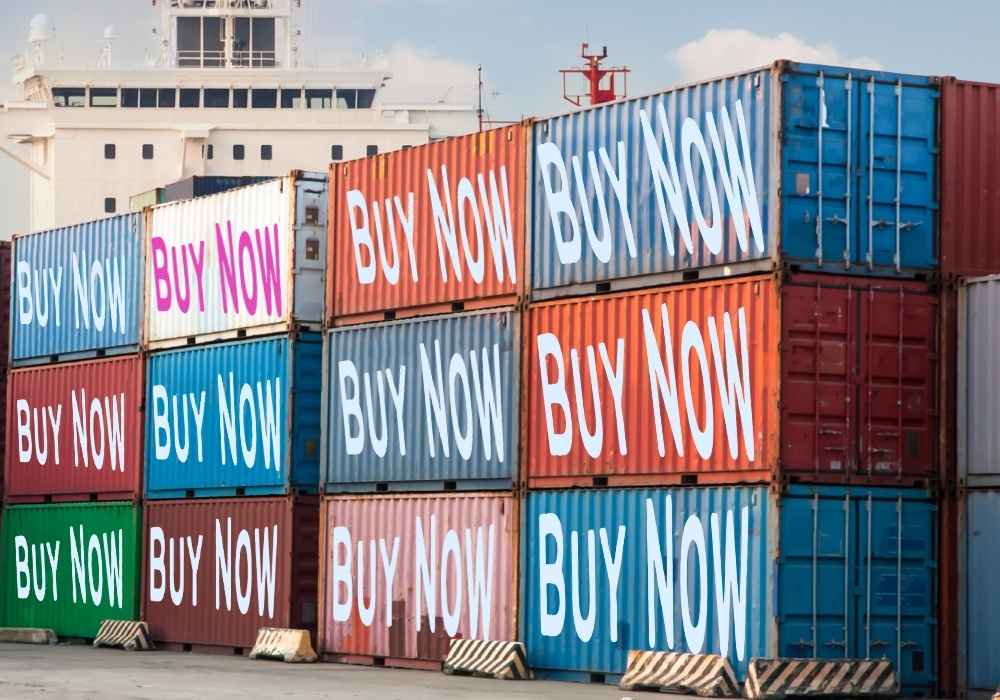This post was last updated on August 11th, 2025 at 07:12 pm
Much of the news surrounding new tariffs lately has focused on the immediate negative effects, namely the likelihood of prices rising on imported goods. And we in the United States import a lot of stuff, from apparel to electronics, particularly from China and other Asian nations. But might this spike in prices come with any unintentional benefits? I propose sky-high tariffs could offer several benefits, at least for the glass-is-half-full crowd.
By the way, I’m not talking about the advertised benefits of using tariffs to shift manufacturing production from overseas to the United States. That’s something many of us would like to see, though the process of ramping up our domestic manufacturing capacity would take years, not weeks or months. In this post, I want to examine some of the unintentional benefits, meaning those that tariff proponents may not be considering (or necessarily view) as benefits.
01 tariff benefit: Fewer people press the ‘Buy Now’ button
Tariffs as high as 145% on imports from China could push prices much higher on a range of goods, from televisions to toasters. Impulse purchases for many consumers, manifested in clicking the “Buy Now” button made famous by Amazon, could slow dramatically. More people might first place their item in an online shopping cart and reflect on whether they actually need the item before buying it. They may also undertake more research into the products that they’re looking to buy, becoming more sensitive to product quality. Higher prices will likely act as a form of self-restraint.
Tariffs could force the American consumer to become more contemplative and think more deeply about spending priorities. They might start asking themselves, “How would this (fill in the blank) add to my life? How often am I likely to use it?” Ultimately, buying fewer things leads to wasting less as a society. For many individuals, it could also mean living with less clutter.
Another term for a shift toward mindful spending of resources is frugality. Being frugal is less about how much money you spend and more about how wisely you’re spending your money. Tariffs could usher in an era of better spending habits.
02 tariff benefit: Repairing broken gadgets becomes worth it
I’m as guilty as anyone when it comes to throwing out broken items rather than bother with trying to repair them. But the truth is, many gadgets are nearly impossible to repair. Some companies make their products difficult to repair precisely because they want you to throw them out and buy a new one–that’s how they pad their profits.
Smartphone companies, in particular, have been accused of designing phones to make it difficult to replace things such as broken screens or worn-out batteries. A movement to force companies to make their products repairable has been gaining momentum in recent years. Several states have pushed what’s known as right-to-repair laws, which require companies to allow their customers to easily and affordably repair their products. Tariffs would likely help fuel these right-to-repair efforts.
As electronics and appliances surge in price, we might also see companies focusing more on creating better quality products in response to consumers making durability and dependability a higher priority.
Along these lines, high tariffs might force apparel companies to make higher quality clothing. The era of fast fashion could end as more people take up sewing and opt to repair damaged clothing instead of tossing it out.
03 tariff benefit: Eating healthier becomes more economical
I read an article (“Your new lunch habit is hurting the economy”) in the Wall Street Journal last month arguing that having more people bring bagged lunches to work is bad for the economy. That’s because when fewer people are spending money on eating out, restaurants and the jobs they create disappear. Well, that’s one way to look at the situation.
Another way is to consider that those bagged lunches are often healthier than anything on a restaurant menu, especially the fast food variety. I’ll take a bagged lunch of a sandwich, carrots, apples, and a couple homemade cookies over restaurant food almost any day. In addition to being healthier, a bagged lunch is also likely to cost less since you bought the ingredients at a grocery store (which also didn’t charge you sales tax and didn’t ask you to pay a tip).
Sure, maybe spending less at restaurants is bad for the overall economy. But at a personal level, saving money and eating healthier take priority, which is why I never feel obligated to “help” the overall economy at the expense of my own pocketbook and well-being.
04 tariff benefit: Gardening also becomes more economical
Gardening received a boost during the COVID pandemic when people were stuck at home and needed to find new things to do. Gardening helped calm their nerves, while offering exercise. The benefits were largely intangible, but that could change with tariffs. Tariffs might make gardening an increasingly wise financial decision. With a 20% tariff on tomatoes from Mexico scheduled to take effect in July, you could save real money by growing and preserving your own tomatoes, especially by raising multiple plants.
Of course, money is rarely the only consideration when deciding to grow a garden. You also benefit from having access to fresh food with high nutritional value, and growing your own garden allows you to minimize or eliminate any pesticide applications. Gardening is also a way to promote self-sufficiency, though most people cannot live on only the food they produce. Still, gardening would provide a backup food supply in the event the United States experienced a geopolitical or economic shock.
05 tariff benefit: Public transportation makes more sense for more people
Many people point to the environmental benefits of public transportation, but I’m thinking about the physical activity benefits. When you ride a bus or subway to work, it typically requires more walking than if you were to drive a car. Those strolls to and from stops and stations involve more exercise than hopping in a vehicle and driving to work. This type of movement, called incidental physical activity (check out my interview with Dr. Emmanuel Stamatakis to learn more), can add steps to your day that you wouldn’t otherwise accumulate.
Of course, few people voluntarily give up their vehicles, but tariffs could make selling a vehicle more attractive. Tariffs could increase vehicle prices by thousands of dollars, possibly leading to higher repair and insurance costs.
Some people lack access to public transportation, and their quality of life could suffer if they lost access to a vehicle. For a select few, however, the prospect of trading their vehicle for more physical activity could prove surprisingly beneficial.
Why these benefits might not feel like benefits
Many people wouldn’t consider this list of benefits to be true benefits because experiencing them would involve some pain. There is a fine line between sacrifice that leads to positive outcomes and suffering that leads to negative outcomes. If tariffs trigger a full-blown depression that results in millions of people growing gardens out of total necessity, such a scenario couldn’t be described as a “benefit” of tariffs. It would feel more like desperation.
When I refer to “unintentional” benefits, I’m assuming that our economic system doesn’t completely collapse as a result of a trade war. For example, if being unable to afford a vehicle results in you losing your job, that’s not a benefit. But if giving up your vehicle is the result of a deliberate choice to both save money and become more physically active (through biking or using public transportation), that’s a possible benefit.
Whether tariffs have a positive or negative impact will depend on each individual’s circumstances. The media has extensively reported on many of the negative scenarios. I’m simply pointing out that tariffs could come with some positives. In my opinion, we might as well embrace these potential benefits if, indeed, we are entering an era of high prices and potential product shortages.

